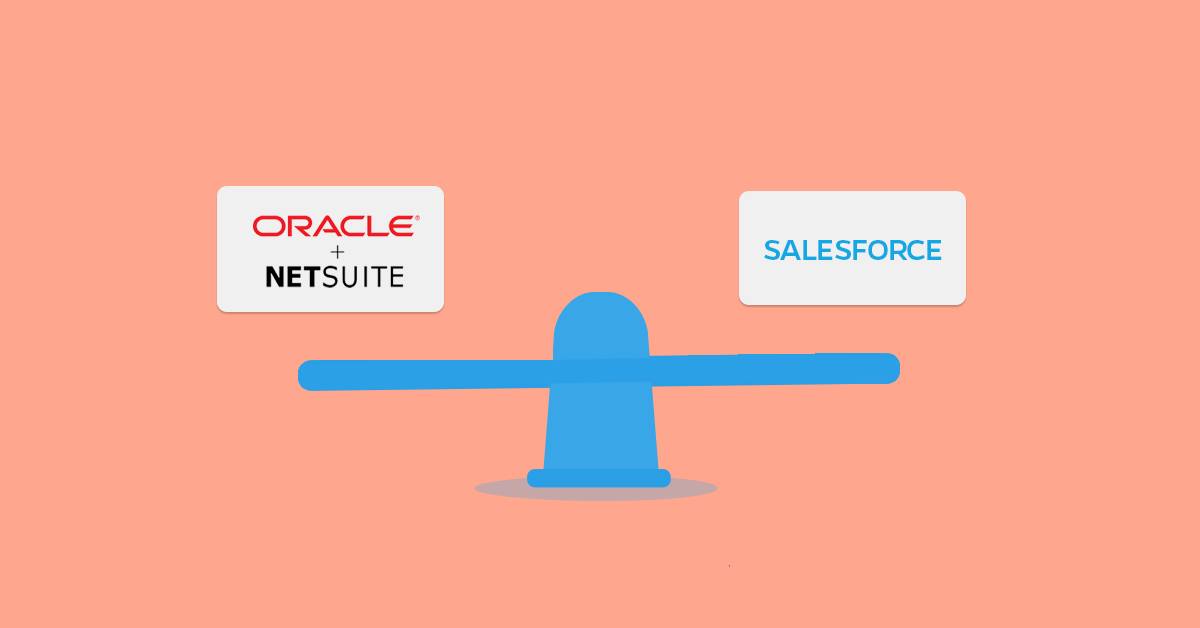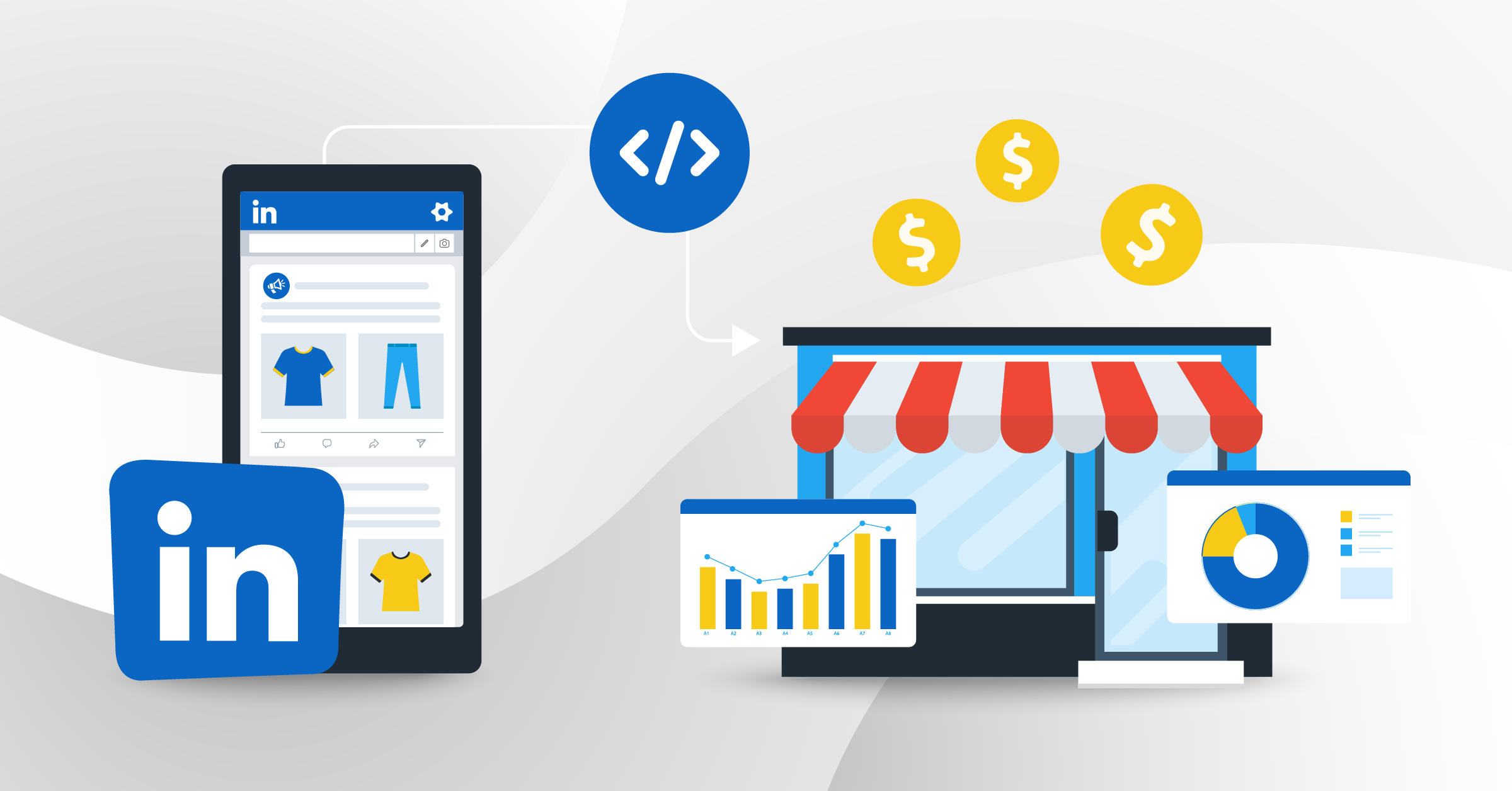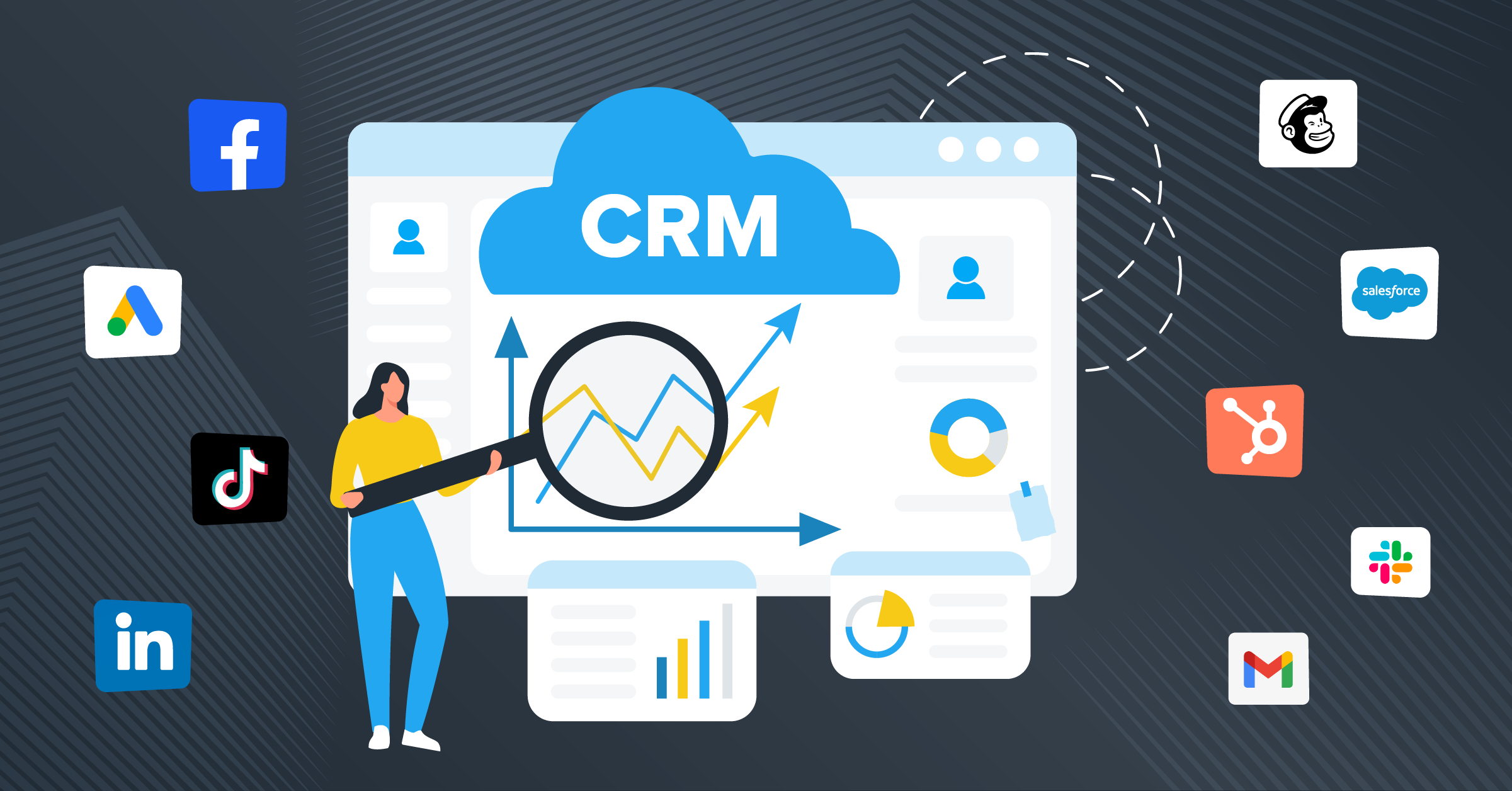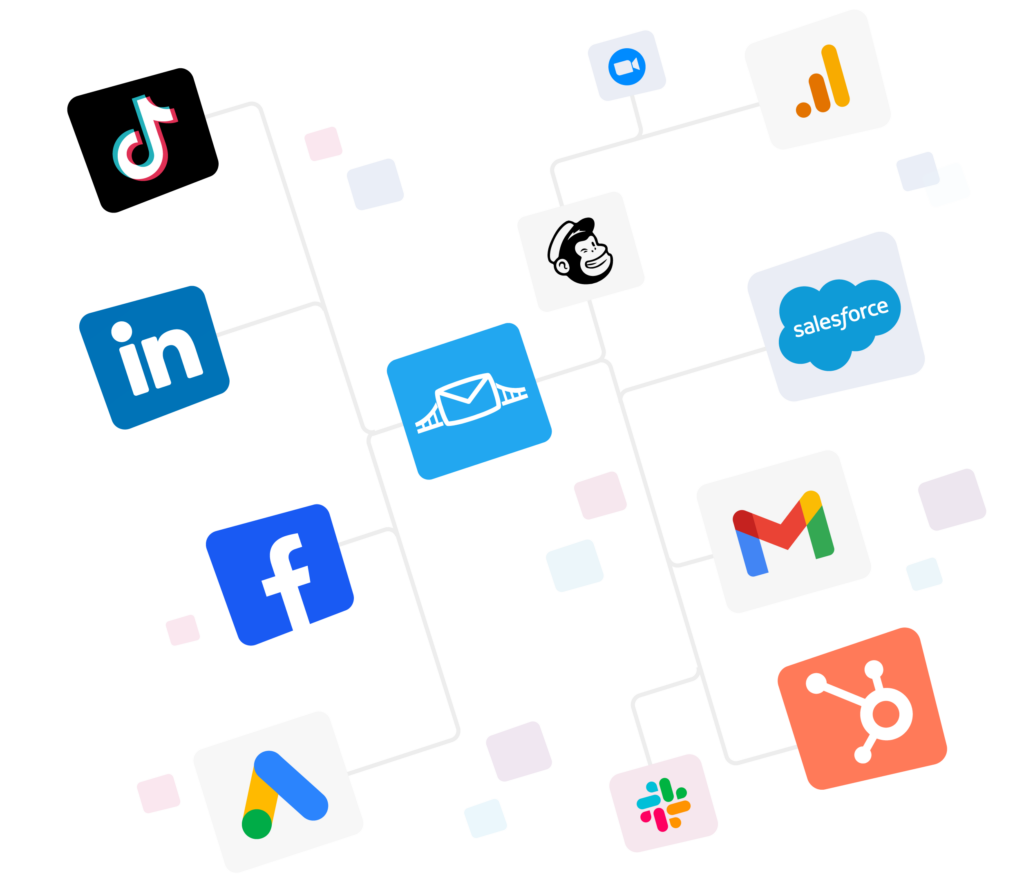
NetSuite and Salesforce are some of the most popular providers of cloud-based software today. Salesforce dominates the CRM market worldwide with a 30.27% market share in 2019. NetSuite is one of the top 10 ERP systems and its CRM has a market share of 0.94%. Therefore, when marketers are searching for new ERP or CRM solution, NetSuite and Salesforce come top of mind. Although, they are similar; they are different.
This comprehensive NetSuite vs Salesforce comparison guide is meant to help you choose the best solution that fits your business.
General Overview
NetSuite

NetSuite, formerly known as NetLedger, was founded by Evan Goldberg in San Mateo in 1998. The company has 5,000 employees. NetSuite grew its range of products around the enterprise resource planning system. This has culminated in a complete suite (“NetSuite”) of different software solutions.
Therefore, NetSuite majorly offers online ERP solutions to enterprise clients. They also provide CRM and E-commerce solutions to small and medium-sized businesses. NetSuite has been investing heavily in growing its set of suite all focused on ERP and CRM offering. As of 2018, NetSuite has 40,000 customers.
Salesforce

Marc Beinhoff found Salesforce in the late 1990s in the heart of Silicon Valley. Salesforce is a customer relationship management software that helps to connect companies and customers together. Their core client has been small business owners based on sales automation. They later expanded their CRM to make it useful for enterprise-level businesses. Salesforce is investing in sales and marketing to grow its market share in the cloud-based CRM market. Salesforce has over 150,000 customers, both big and small businesses.
Netsuite vs Salesforce: The features
NetSuite’s CRM is divided into five modules, each with its features as shown below:
| NetSuites Modules | Features |
| Customer service management |
|
| Marketing automation |
|
| Mobile |
|
| Partnership relationship management |
|
| Salesforce automation: |
|
Below is NetSuites ERP Features.
| ERP | Features |
| Financial management |
|
| Financial planning | |
| Order Management |
|
| Procurement |
|
| Production Management |
|
| Supply Chain Management |
|
| Warehouse & Fulfillment |
|
Salesforce CRM features
Salesforce CRM feature is divided into three major parts i.e. Sales cloud, Marketing cloud, and Service cloud. Others include Analytics cloud, Data cloud, Community Cloud, App Cloud, and IoT.
| Cloud | Features |
| Sales cloud |
|
| Service cloud |
|
| Marketing cloud |
|
The focus:
Salesforce is a popular CRM vendor with different customer-oriented applications such as:
- Sales Cloud
- Marketing cloud
- Service cloud
- Wave analytics
- Integration from SMB to Enterprise
- Good market cap
- Smaller debt to income ratio
NetSuite is an integrated solution vendor which is majorly focused on ERP, CRM and E-Commerce functions such as:
- ERP
- CRM
- E-commerce
- For small business
- Smaller market cap
- Greater debt to income ratio
CRM software comparison
NetSuite’s CRM is not a standalone CRM option. It is a total package of ERP, CRM, and E-commerce solutions combined in one place. Therefore, NetSuite CRM is suitable for companies that want to run their business solely on a single business application in the cloud.
Salesforce is suitable for businesses that need a total CRM package with a good ecosystem of service providers and third-party applications.
Netsuite vs Salesforce: the Pricing Model
NetSuite offers different pricing models based on the industry, business model of deployment and company size. However, the pricing plan starts from $999 per month with user access at $99 per month.
Salesforce offers different pricing plans for its customers on different plans such as the small business, sales cloud, service cloud, marketing cloud, commerce cloud. etc. For example, the pricing plan for Small business solutions, Sales cloud, and Service cloud are as shown below.

For Sales cloud, the pricing is as shown below:

Below is the Service cloud pricing:

As seen from the pricing above, NetSuite is more expensive, subscription-based and does not offer a trial. Salesforce is more affordable for small businesses. It is subscription-based, and it provides a free trial.
Netsuiteand Salesforce: pros & cons
NetSuite – The pros
- NetSuite provides streamlined information across the customer life cycle
- It has optimized sales performances through advanced forecasting capabilities
- It has customization and integration abilities
- NetSuite ERP is one of the best cloud solution available online
- It integrates ERP, CRM and, e-commerce in one product, saving lots of integration costs.
NetSuite The Cons
- Non-intuitive user interface
- High customer support fees
Salesforce – The pros
- It is the most popular CRM online
- It is an intuitive User interface
- It has an excellent analytics and reporting tool
- It has good customer service
- It has an enhanced CRM functionality and a robust development community
- It provides a database useful in digitizing and organizing company sale records
- It updates automatically
- It integrates with other apps to enhance Salesforce experience.
Salesforce – The cons
- It functions only as a CRM
- Its integration with ERP software is costly
- It can be complex to learn and use, especially compared with Salesforce competitors.
Platforms supported
It is very important to be able to access cloud-based CRMs from anywhere and at any time from devices such as the desktop, phone, and tablet. Both NetSuite and sales provide access to mobile and desktop devices.
Customer support
NetSuite and Salesforce both provide phone support, Email, live support, Tickets, knowledge base, and video tutorials.
Suitable clients
Both NetSuite and Salesforce supports small and medium businesses and large enterprises.
Integrations
NetSuite integrations:
The most important integration of NetSuite is with Leadsbridge. LeadsBridge connects the main advertising platforms with over 370 CRMs. For example, one of the most popular Netsuites integration is Facebook Lead ads, a specific type of ads that enable advertisers to create ads with a pre-filled form containing the users details such as the name and the email address. This makes it easy to generate leads on the Social Network.
Other popular NetSuite integrations offered by Leadsbridge are Facebook custom audiences, Google Customer Match, Facebook Offline Conversions.
Salesforce integrations:
Salesforce can be integrated with the most popular advertising tools and CRM software, thanks to Leadsbridge. Not only does Leadsbridge help you to integrate lead generation ads with your Salesforce CRM (like FB lead Ads, LinkedIn Lead Gen Forms, and more), through LeadsBridge, users can also integrate business tools such as Google Sheets, Calendars and Email marketing platforms seamlessly and securely.
Moreover, Leadsbridge also enables you to integrate your Salesforce CRM with Facebook Custom Audiences, Facebook Offline Conversions, Google Customer Match, and LinkedIn Matched Audiences for retargeting your CRM segments with your ads.
Languages supported
Salesforce supports English, Spanish, Dutch, Italian, Portuguese, French and Swedish.
NetSuite only supports only the English language.
Conclusion aboutNetsuite vs Salesforce
Above is a comprehensive comparison between NetSuitevs Salesforce. The two software works, based on company needs, budget and business model. Both of them offer the opportunity to upgrade business operations for the 21st century. They also help to improve customer relationships and sales. Therefore, diligently compare the features and pricing to determine the best to adopt for your business.









